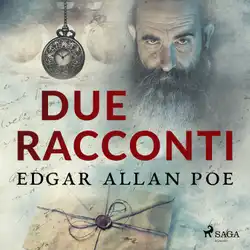"Ligeia" (/laɪˈdʒiːə/) is an early short story by American writer Edgar Allan Poe, first published in 1838. The story follows an unnamed narrator and his wife Ligeia, a beautiful and intelligent raven-haired woman. She falls ill, composes "The Conqueror Worm", and quotes lines attributed to Joseph Glanvill (which suggest that life is sustainable only through willpower) shortly before dying. After her death, the narrator marries the Lady Rowena. Rowena becomes ill and she dies as well. The distraught narrator stays with her body overnight and watches as Rowena slowly comes back from the dead – though she has transformed into Ligeia. The story may be the narrator's opium-induced hallucination and there is debate whether the story was a satire. After the story's first publication in The American Museum, it was heavily revised and reprinted throughout Poe's life.

The Pit and the Pendulum
Edgar Allan Poe
audiobookbook
Edgar Allan Poe: Der Eroberer Wurm : 13 Gedichte von Liebe, Tod und Wiederkehr
Edgar Allan Poe
audiobook
Lionizing
Edgar Allan Poe
book
Ligeia
Edgar Allan Poe
book
Loss of Breath
Edgar Allan Poe
book
Edgar Allan Poe Short Stories
Edgar Allan Poe
book
Un Descenso por el Maelström
Edgar Allan Poe
audiobook
The Fall Of The House Of Usher
Edgar Allan Poe
book
Romantische Erzählungen
Edgar Allan Poe
book
Ligeia
Edgar Allan Poe
book
Due racconti
Edgar Allan Poe
audiobook
Anthology of Classic Short Stories. Vol. 4 (Mystery and Adventure) : The Adventure of the Blue Carbuncle by Arthur Conan Doyle, The Arrow of Heaven by G. K. Chesterton, The Diamond as Big as the Ritz by F. Scott Fitzgerald and others
Arthur Conan Doyle, G. K. Chesterton, Edgar Allan Poe, Jack London, Jacques Futrelle, Thomas Hardy, F. Scott Fitzgerald, Susan Glaspell
book
